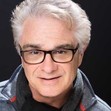Book Review 'The Pigeon Tunnel' by John Le Carré
No question, John Le Carré is an engaging storyteller of the spy-thriller genre. But, in a larger context, he is a master craftsman of literary fiction. He is a thoughtful commentator on geopolitics – and particularly on the power structure President Eisenhower named the “military-industrial complex.” And he is angry, in the tradition of British postwar novelists John Osborne and Kingsley Amis, who saw the political order and its elitist society as fundamentally corrupt.
Le Carré makes his subtle arguments in his fiction. You won’t find any political rants in this collection of autobiographical essays. His worldview is optimistic cynicism. Love, he says (in his novels, not explicitly here), is any close relationship you have not yet betrayed. Emphasis on yet. His optimism creeps in when he encounters rare acts of exceptional kindness. He includes many of those delightful surprises in these essays, including some for which he modestly takes personal responsibility.

It’s a memoir, a cautionary tale. Also - career counseling? (Penguin)
The Pigeon Tunnel: Stories from My Life was billed by its publicists as John Le Carré’s first memoir. However, it would be more accurate to say that these are the journal entries of a different person – David Cornwell. Le Carré is Cornwell’s pen name and invented persona. This book is mostly about real-world episodes and people in Cornwell’s life who correspond closely to the stories and characters that the other person – the novelist – ripped off and exploited.
What’s remarkable is the apparent ease with which he has gained access and moved among aristos, politicians, celebrities, journalists, gangsters, and warlords. It’s obvious that he listens more than he talks. His occasional questions of his acquaintances and interview subjects are penetrating and often brash.
He tells us that Oxford don Vivian Green became the model for George Smiley, Yvette Pierpaoli for Tessa Quayle, and Cornwell’s own father, Ronnie, for Rick Pym. A key strategy in Ronnie’s plan for parenting was to send David away to exclusive boarding schools, despite a habitual lack of funds for tuition. One character Cornwell does not own to specifically is timid schoolboy Bill Roach of Tinker, Tailor, Soldier, Spy. Little Cornwell is likely the model for the shy, tubby Roach. Bullied by his peers and cowed by his mentors, “the unpaid Bill” learns he has talents as a “close observer.” And this is Le Carré’s central metaphor. What is a spy but a close observer? George Smiley can recite from memory the license-plate numbers of every car at the curb on the way to his house.
And what is the reader but a close observer? Thank you, Mr. Le Carré, for training me and your fans not only to read closely, but also to pay attention to seemingly mundane details, inflections of voice, nuanced sins of omission, and – most of all – the white space between the lines.
For all its revelations, The Pigeon Tunnel has a notable information gap. As I turned its pages, I was eager to get the scoop on the topic that has inspired the author’s most recent fury. Back in the Cold-War era, he was focused on the power plays between the intelligence agencies of the East and West, along with the hypocrisies of their governments and the incompetence of their bureaucrats. But a new generation of readers regards all that as old news.
What’s new is the globalized shadow government that seems to be taking over. Conspiracy theory? Hardly. Here’s what President Obama had to say about it in his last address to the General Assembly of the United Nations:
Global capital is too often unaccountable — nearly $8 trillion stashed away in tax havens, a shadow banking system that grows beyond the reach of effective oversight.
When you consider that the total world economy at that time was estimated to be something like $80 trillion annually, you begin to see the size of the monster – and it’s growing.
And if you think any politician – whether crooked or straight or bent, in any country – will ever lift a finger to prosecute big-boy money launderers, well, as one of Le Carré’s hapless espiocrats sighs, “You don’t understand anything bad.”
Errol Morris has done several other films on espionage and geopolitics. See especially his interview with Donald Rumsfeld, The Unknown Known.

Feed your curiosity with a paid subscription to this Thinking About Thinking blog. You’ll gain access to all the content that’s here, and you’ll be helping us build our worldwide community through storytelling and self-expression.
And if you’re already a subscriber…



